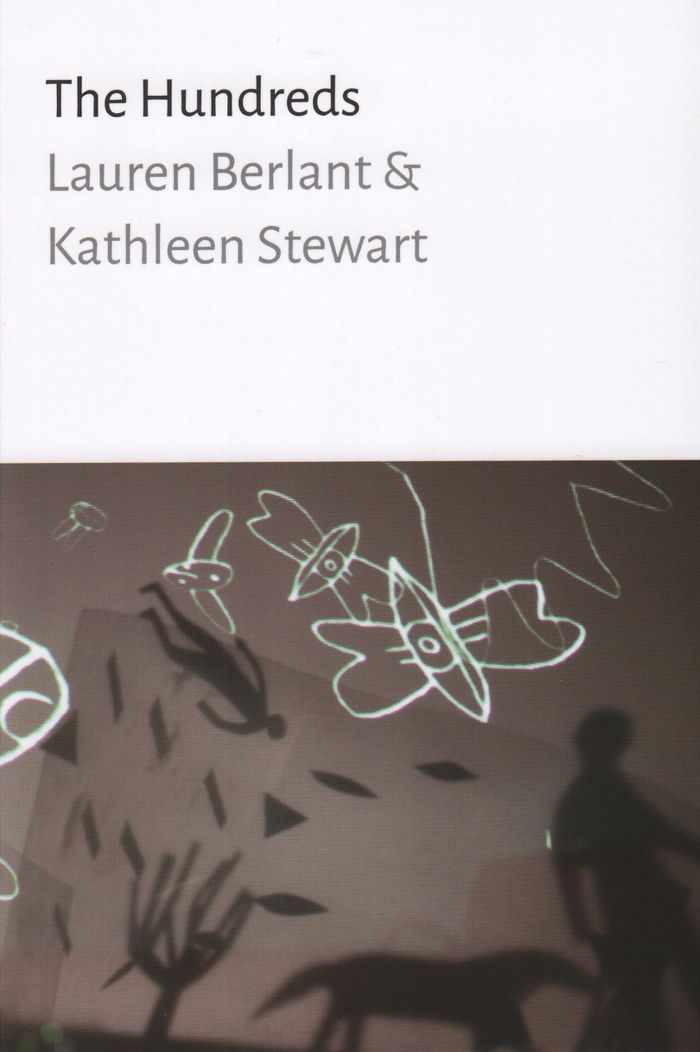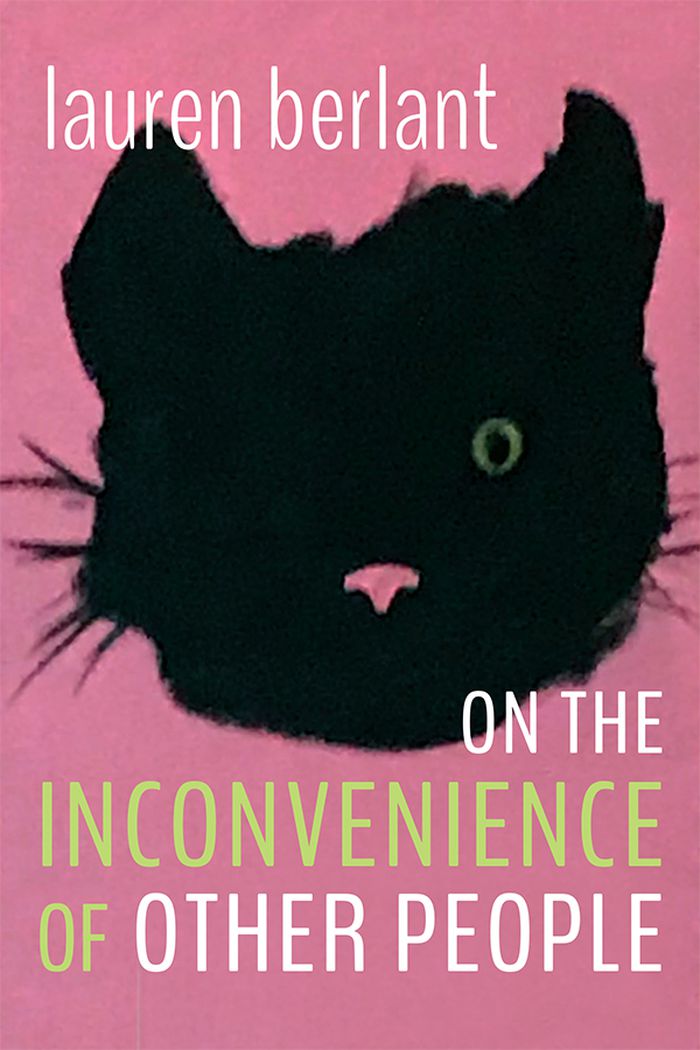The hundreds
$30.95
(available to order)
Summary:
In ''The Hundreds'' Lauren Berlant and Kathleen Stewart speculate on writing, affect, politics, and attention to processes of world-making. The experiment of the one hundred word constraint- each piece is one hundred or multiples of one hundred words long- amplifies the resonance of things that are happening in atmospheres, rhythms of encounter, and scenes that shift the(...)
The hundreds
Actions:
Price:
$30.95
(available to order)
Summary:
In ''The Hundreds'' Lauren Berlant and Kathleen Stewart speculate on writing, affect, politics, and attention to processes of world-making. The experiment of the one hundred word constraint- each piece is one hundred or multiples of one hundred words long- amplifies the resonance of things that are happening in atmospheres, rhythms of encounter, and scenes that shift the social and conceptual ground. What's an encounter with anything once it's seen as an incitement to composition? What's a concept or a theory if they're no longer seen as a truth effect, but a training in absorption, attention, and framing? ''The Hundreds'' includes four indexes in which Andrew Causey, Susan Lepselter, Fred Moten, and Stephen Muecke each respond with their own compositional, conceptual, and formal staging of the worlds of the book.
Critical Theory
$33.95
(available in store)
Summary:
In this book, Lauren Berlant continues to explore our affective engagement with the world. Berlant focuses on the encounter with and the desire for the bother of other people and objects, showing that to be driven toward attachment is to desire to be inconvenienced. Drawing on a range of sources, including Last Tango in Paris, Ralph Waldo Emerson, Claudia Rankine,(...)
On the inconvenience of other people
Actions:
Price:
$33.95
(available in store)
Summary:
In this book, Lauren Berlant continues to explore our affective engagement with the world. Berlant focuses on the encounter with and the desire for the bother of other people and objects, showing that to be driven toward attachment is to desire to be inconvenienced. Drawing on a range of sources, including Last Tango in Paris, Ralph Waldo Emerson, Claudia Rankine, Christopher Isherwood, Bhanu Kapil, the Occupy movement, and resistance to anti-Black state violence, Berlant poses inconvenience as an affective relation and considers how we might loosen our attachments in ways that allow us to build new forms of life. Collecting strategies for breaking apart a world in need of disturbing, the book’s experiments in thought and writing cement Berlant’s status as one of the most inventive and influential thinkers of our time.
Social

